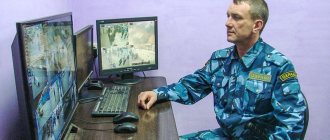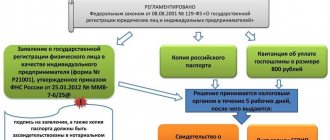Laws licensing activities in Russia
The types of activities for which a license must be obtained are established by federal laws. In addition to the licensed types of activities provided for by Law No. 99-FZ of May 4, 2011 “On licensing of certain types of activities,” there are other areas of business that are also subject to licensing. These types of activities in the Russian Federation are regulated by separate laws:
- use of atomic energy - Law No. 170-FZ of November 21, 1995;
- production and circulation of alcohol - Law No. 171-FZ of November 22, 1995;
- activities of credit institutions - Law No. 395-1 of December 2, 1990;
- protection of state secrets - Law No. 5485-1 of July 21, 1993;
- holding auctions - Law No. 325-FZ of November 21, 2011;
- professional activity in the securities market - Law No. 39-FZ of April 22, 1996;
- activities of NPFs – Law No. 75-FZ of 05/07/1998;
- clearing activities – Law No. 7-FZ of 02/07/2011;
- insurance activities - Law No. 4015-1 of November 27, 1992;
- space activities - Law No. 5663-1 of 08/20/1993.
As you can see, these are mainly areas that require serious financial investments, so small businesses rarely choose such areas of activity, with the exception of the sale of alcohol. But the list of licensed types of activities specified in Law No. 99-FZ of 05/04/2011 includes many areas popular among novice businessmen, so we suggest that you familiarize yourself with it in more detail.
Where to apply and deadlines for obtaining a license
Licensing authorities are identified by type of activity in the List approved by Decree of the Government of the Russian Federation of November 21, 2011 N 957. You must contact their regional departments. For example, the Ministry of Emergency Situations carries out licensing of activities to ensure fire safety, the Ministry of Internal Affairs - security activities, Roszdravnadzor - pharmaceutical activities.
Within three working days from the date of submission of the application, the licensing authority makes a decision on consideration or return with a reasoned justification of the reasons for the return.
If the application reveals a violation of the requirements or the documents are not presented in full, then within three working days the licensing authority will issue a notice of the need to eliminate. 30 days are given for correction.
Within 45 working days from the date of receipt of the application and documents, the completeness and accuracy of the information is checked and a decision is made to grant a license. The decision is formalized by order (instruction) of the licensing authority. Within 3 working days after the license is signed by the licensing authority, it is handed over to the company.
In practice, unfortunately, it is not always possible to meet the deadlines established by law; the licensing authority will certainly try to find inconsistencies, which will delay the process of obtaining a license.
Licensed activities for 2020
Types of activities in Russia for which a license must be obtained in accordance with Art. 12 of Law No. 99-FZ, we have collected in this list:
- development, production, distribution of encryption tools, information systems and telecommunication systems, performance of work, provision of services, maintenance in this area, with the exception of the own needs of an organization or individual entrepreneur;
- development, production, sale and acquisition for the purpose of sale of special technical means intended for secretly obtaining information;
- activities to identify electronic devices intended for secretly obtaining information, with the exception of the own needs of the organization or individual entrepreneur;
- development and production of security equipment, activities for technical protection of confidential information;
- production and sale of counterfeit-proof printed products;
- development, production, testing and repair of aircraft;
- development, production, testing, installation, assembly, maintenance, repair, disposal and sale of weapons and military equipment;
- development, production, trade, testing, storage, repair and weapons;
- development, production, testing, storage, sale and disposal of ammunition, pyrotechnic products of classes IV and V;
- activities for the storage and destruction of chemical weapons;
- operation of explosion and fire hazardous and chemically hazardous production facilities of hazard classes I, II and III;
- activities to extinguish fires in populated areas, at production facilities and infrastructure facilities;
- activities for installation, maintenance and repair of fire safety equipment for buildings and structures;
- production of medicines;
- production and maintenance of medical equipment, except if it is necessary for the own needs of the organization or individual entrepreneur;
- trafficking in narcotic drugs, psychotropic substances, cultivation of narcotic plants;
- activities in the field of use of pathogens of infectious diseases of humans and animals and GMOs of III and IV degrees of potential danger;
- activities related to the transportation of passengers by inland water transport and sea transport;
- activities related to the transportation of dangerous goods by inland water transport and sea transport;
- activities related to the transportation of passengers by air, with the exception of the own needs of the organization or individual entrepreneur;
- activities for the transportation of goods by air, with the exception of the own needs of the organization or individual entrepreneur;
- activities for the transportation of passengers by motor transport, more than eight people, with the exception of the own needs of the organization or individual entrepreneur;
- activities related to the transportation of passengers by rail;
- activities related to the transportation of dangerous goods by rail;
- loading and unloading activities of dangerous goods on railway, inland water transport in seaports;
- activities related to towing by sea transport, with the exception of the own needs of the organization or individual entrepreneur;
- activities for collection, transportation, processing, disposal, neutralization, disposal of waste of I - IV hazard classes;
- activities related to the organization and conduct of gambling in bookmakers and sweepstakes;
- private security and detective activities;
- procurement, storage, processing and sale of scrap ferrous metals, non-ferrous metals;
- provision of employment services for Russian citizens outside the Russian Federation;
- provision of communication services;
- television and radio broadcasting;
- activities for the production of copies of audiovisual works, programs for electronic computers, databases and phonograms on any type of media, with the exception of independent activities of persons holding copyright and related rights;
- activities in the field of using sources of ionizing radiation, with the exception of the case if these sources are used in medical activities;
- educational activities;
- geodetic and cartographic works for federal purposes;
- production of surveying works;
- work on active influence on hydrometeorological and geophysical processes and phenomena;
- activities in the field of hydrometeorology and related areas;
- medical activities;
- pharmaceutical activities;
- activities to preserve cultural heritage sites of the peoples of the Russian Federation;
- activities to conduct industrial safety assessments;
- activities related to the handling of explosive materials for industrial use;
- entrepreneurial activity in the management of apartment buildings;
- performing work on quarantine phytosanitary disinfection;
- activities for the production of biomedical cell products;
- activities for the maintenance and use of animals in zoos, animal parks, circuses, animal theaters, dolphinariums, oceanariums.
Types of security services
Security services are distinguished by the object they are aimed at preserving. Art. 3 of the Law of the Russian Federation of March 11, 1992 No. 2487-1 identifies the following:
- protection of life and health; this category includes actions to ensure the safety of individuals, regardless of citizenship;
- protection of property and things, regardless of the basis of ownership (property, operational management, etc.). This type of service is aimed at protecting movable, immovable property, securities and other objects for which the customer can confirm his ownership;
- ensuring order during mass events. This implies maintaining order during large crowds of citizens, for example, during exhibitions, corporate meetings, presentations;
- security of objects with the implementation of work on maintenance of technical equipment. For complete control and quick response to illegal actions, a security organization has the right to install special alarm systems, video surveillance, and control over the movement of objects. The list of types of technical means that can be used is established by Decree of the Government of the Russian Federation dated June 23, 2011 No. 498;
- ensuring security at facilities with the organization of access control, in compliance with anti-terrorism security. This type involves providing assistance to law enforcement agencies in order to suppress, prevent and solve offenses or crimes. The limits of the powers of persons providing assistance are established by Decree of the Government of the Russian Federation of August 14, 1992 No. 587;
- creation of access control at facilities that do not apply to anti-terrorist security rules. This category includes companies that organize activities at a protected facility, which excludes the possibility of uncontrolled passage of employees and vehicles, and establishes a system for identifying employees using passes;
- consulting on the legality of protection from unlawful attacks. This type includes conducting classes using educational literature and law enforcement practice. Training services may be provided in written and oral form.
The list of types of security services established by the Law of the Russian Federation of March 11, 1992 No. 2487-1 is exhaustive. Among the documents on the basis of which legal regulation is carried out, there is a provision on licensing of private security activities, its text is given in Decree of the Government of the Russian Federation of June 23, 2011 No. 498. It establishes the requirements for the applicant, types of violation of licensing requirements, a list of necessary documents for obtaining a license .
Licensed types of activities according to OKVED codes
The licensed types of activities in 2020 do not always exactly correspond to OKVED codes, which must be indicated in the application for registration of individual entrepreneurs and LLCs. Some types of activities according to the OKVED classifier are almost completely repeated in the text of laws.
| Name of the licensed type of activity in the law | OKVED code |
| Production of medicines | 21.20 |
| Activities related to the transportation of passengers by rail | 49.10 |
| Activities related to the transportation of dangerous goods by rail | 49.20.1 |
But if we take as an example such a licensed area as pharmaceutical activity, then it will correspond to several OKVED codes at once. In Law No. 61-FZ dated 12.04. 2010, the following concept is given: “pharmaceutical activities - activities that include wholesale trade in medicines, their storage, transportation and/or retail trade in medicines, their dispensing, storage, transportation, manufacturing of medicines.”
OKVED codes permitted for pharmaceutical activities will be as follows:
- 46.46 - wholesale trade in pharmaceutical products;
- 47.73 - retail sale of medicines in specialized stores;
- 21.20 - production of medicines and materials used for medical purposes.
Selecting a list according to OKVED for a licensed line of business is not always easy, so we advise you to get a free consultation from professional registrars.
Free selection of OKVED
OKVED codes and license
The applicant reports on the type of business the individual entrepreneur will engage in in form P21001 when registering with the tax office. To designate specific types of activities in the application for registration, digital codes according to OKVED (All-Russian Classifier of Types of Economic Activities) are used.
It is impossible to compare the list by OKVED codes with types of activities subject to licensing in Russia. The fact is that licensed areas are broader than a specific OKVED code.
How to determine whether OKVED is subject to licensing
For example, if you select an educational activity, then the following codes from OKVED-2 will correspond to it:
- 85.11: Preschool education
- 85.12: General primary education
- 85.13: Basic general education
- 85.14: General secondary education
- 85.21: Secondary vocational education
- 85.22: Higher education
- 85.23: Training of highly qualified personnel
- 85.30: Professional training
- 85.41: Additional education for children and adults
- 85.42: Additional professional education
Moreover, these are only four-digit codes, and if we take into account five-digit and six-digit codes, there will be even more of them. And if we take pharmaceutical activity, then this concept includes the sale of medicines, their storage, and the manufacture of medicines according to prescriptions.
That is, you need to select OKVED codes from different sections of the Classifier. Before adding OKVEDs to documents, check them for relevance using the transition table of codes from the Federal Tax Service.
The mere indication in form P21001 of OKVED codes corresponding to the licensed direction does not oblige one to obtain a license. Only if an entrepreneur starts real activities, it is necessary to contact the licensing authority in advance.
However, some inspectors, and sometimes banks, are interested in whether you have a license if the corresponding OKVED codes are indicated in the extract from the Unified State Register of Individual Entrepreneurs. If you are not yet planning to work under a license, then for your own peace of mind it is not at all necessary to enter these codes in advance when registering an individual entrepreneur. You can always add them later by submitting Form P24001.
How to get a license
Working without a license, if this activity must be licensed by law, is punishable by fines, confiscation of property, equipment and materials, and other sanctions. Only licensed organizations or individual entrepreneurs have the right to engage in such activities. Licenses are issued by various government bodies, for example, educational activities are controlled by Rosobrnadzor, and passenger transportation by Rostransnadzor. We discussed the procedure for a licensee to apply for permission in the article “Licensing of activities.”
Please note that there are some types of activities for which licenses are issued only to legal entities. The possibility of refusal to issue a license due to organizational and legal status must be foreseen in advance. For example, an individual entrepreneur cannot sell alcohol, except beer, or engage in insurance or credit activities. If you want to engage in such a business, then you only need to register an LLC.
License validity
According to Article 99 of the Federal Law, an entrepreneur can begin activities from the next date after the day the license is issued throughout the country. That is, for example, the transfer of an enterprise from one entity to another if local authorities receive notification in a timely manner.
According to the law, the document is valid without a time limit, provided that all requirements for the specified type of activity are met. In case of any changes, it is necessary to re-register the documents.
Responsibility for security activities without a license
In the case of carrying out security activities without a license, a legal entity, as well as citizens and officials, risk being brought to administrative liability under Part 2 of Art. 14.1. Code of Administrative Offenses of the Russian Federation, i.e. for carrying out business activities without special permissions (licenses). A fine will be imposed as punishment for the specified composition.
The Code of Administrative Offenses of the Russian Federation also provides for composition in Art. 20.16. for illegal private detective or security activities.
In addition to administrative liability for carrying out security activities without a license, the Russian Federation also provides for criminal liability under Art. 171 of the Criminal Code of the Russian Federation for illegal entrepreneurship. The head of the organization and the person who actually performs his functions are subject to the appropriate type of responsibility.
Which organizations issue licenses?
The licensing authority is entirely dependent on the type of activity being licensed. There are many organizations (most often under ministries) vested with this kind of authority. An approximate list of regulatory authorities is as follows:
- Any security activity or private investigation - Ministry of Internal Affairs.
- Activities related to medicine (including equipment repair) - Roszdrav.
- Educational work - Rosobrnadzor.
- Passenger transportation (both ground and air) - Rostrans.
- Space activities - Roscosmos.
- Sale of alcoholic beverages - Rosalkogolregulirovanie.
Where you can obtain a license for a particular type of business activity is determined by Government Decree No. 957.
A change in the supervisory authority is possible only after the issuance of a new resolution, so you can safely rely on this legislative act.







